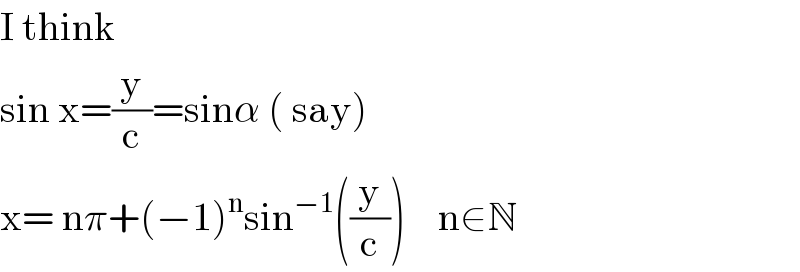
Question and Answers Forum
Question Number 115632 by m173 last updated on 27/Sep/20

Commented by m173 last updated on 27/Sep/20
find general solution
Commented by MJS_new last updated on 27/Sep/20

Commented by mohammad17 last updated on 27/Sep/20

Commented by MJS_new last updated on 27/Sep/20

Commented by Dwaipayan Shikari last updated on 27/Sep/20

Commented by mathmax by abdo last updated on 27/Sep/20

Answered by PRITHWISH SEN 2 last updated on 27/Sep/20

